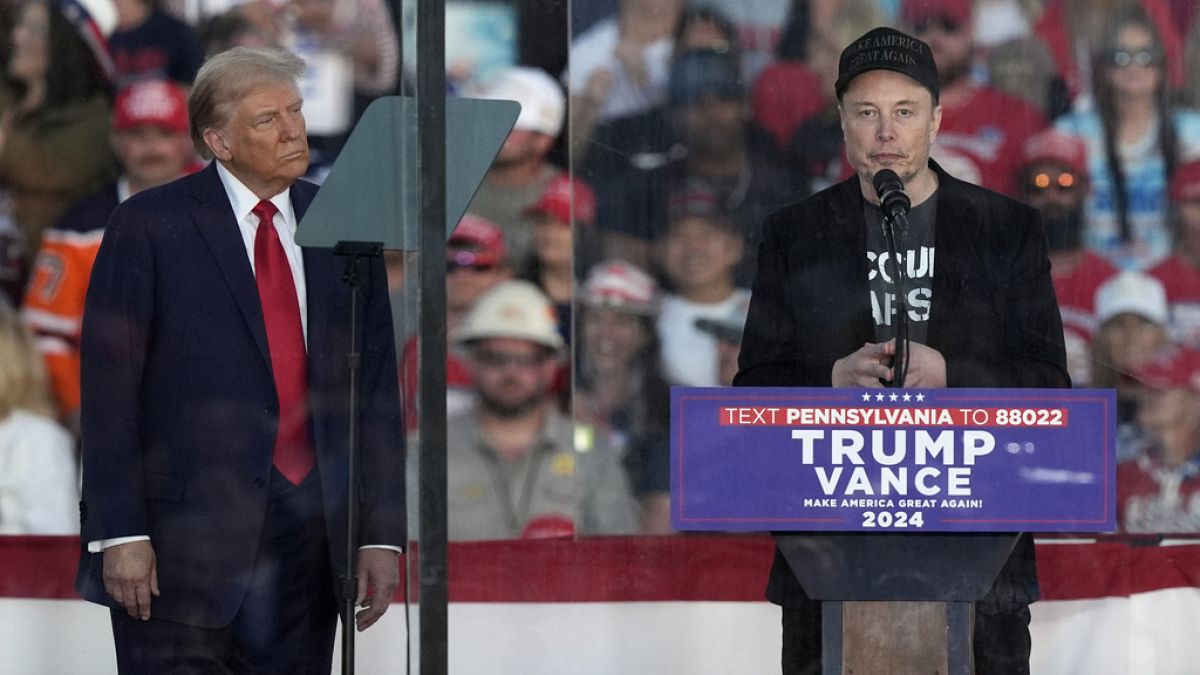
A Philadelphia court has cleared Elon Musk to continue with a cash handout scheme described as a lottery despite acknowledging that winners of his giveaways were chosen selectively.
Philadelphia District Attorney (DA) Larry Krasner accused Musk of violating Pennsylvania lottery laws. However, Philadelphia County Court of Common Pleas judge Angelo Foglietta denied the DA’s request to end the giveaways, finding that there was no ‘lottery fraud’ as there was never in fact a lottery.
During a hearing Elon Musk’s organisation acknowledged that winners of his giveaways were chosen selectively, which Philadelphia’s district attorney called “political marketing masquerading as a lottery.”
The billionaire founder of Tesla and owner of X organised a raffle intended to give away $1 million (around €921,000) every day among voters in swing states who sign his political action committee’s petition.
More than a million people from the seven states –Arizona, Georgia, Michigan, Nevada, North Carolina, Pennsylvania and Wisconsin — entered the sweepstakes by signing a petition supporting the right to free speech and to bear arms: the first two amendments of the US Constitution.
“We’re going to be awarding a million dollars randomly to people who have signed the petition every day from now until the election,” Musk said during Donald Trump’s election campaign.
From the beginning, the giveaway raised doubts about its legitimacy, as each winner was present at the rallies where Musk distributed the funds.
During the hearing Chris Young, treasurer of America PAC – Elon Musk’s political action committee, which supports Trump – said that winners were never chosen randomly.
He revealed that he knew in advance who the recipients would be, and that the winners knew they would be called on stage at Musk’s events but weren’t aware they would win the prize.
Chris Gober, lawyer of the Republican Party, said the recipients were chosen based on their personal stories and signed a contract with America PAC, which also required them to sign a non-disclosure agreement.
He added that the final recipients – on Monday and Tuesday – will be in Arizona and Michigan and won’t affect the Pennsylvania election.
Pennsylvania remains a crucial battleground state with 19 electoral votes, and both Trump and Harris have repeatedly visited the state.
Krasner said he might still consider criminal charges, as he’s responsible for overseeing both lotteries and the integrity of elections.
This forms part of a civil case brought by Krasner, accusing Musk’s PAC of breaching state election law and it is not the only action against the giveaway.
The US Department of Justice is also investigating whether the ‘lottery’ breaches national election law, as it is illegal to pay people to vote or to register to vote.
While neither Trump nor American PAC are directly paying voters, the petition that must be signed to enter the sweepstake requires participants to be registered to vote.
This is not the first time Musk’s PAC has offered financial incentives. Previously, Musk announced on X that he would pay people $100 (around €92) for referring registered voters and for signing the petition.





